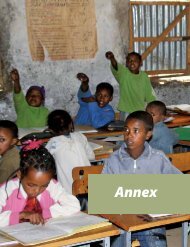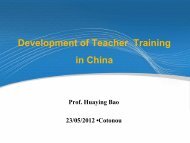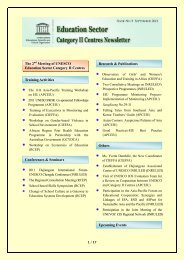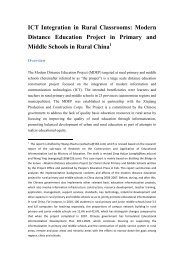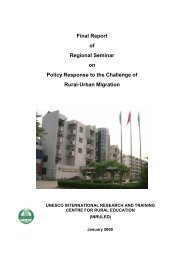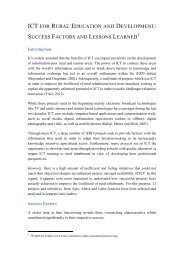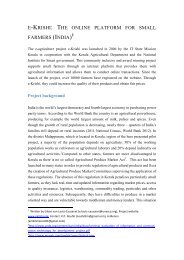Download - inruled
Download - inruled
Download - inruled
Create successful ePaper yourself
Turn your PDF publications into a flip-book with our unique Google optimized e-Paper software.
1.0 The context of the ZEP<br />
project in Mauritius<br />
The Republic of Mauritius is an island nation in the Indian Ocean about 2,000<br />
kilometres off the south east coast of the African continent. Politics in Mauritius takes<br />
place in a framework of a parliamentary representative democratic republic. The<br />
country includes the islands of Agaléga, Saint Brandon and Rodrigues. The area of<br />
the country is 2040 km 2 having Port Louis as its capital city. The population estimate<br />
(as of 1 July 2012) for the whole Republic is 1,291,456. Considered part of Africa<br />
geographically, Mauritius is a friendly country and it entertains good relations with the<br />
great nations of the world. Mauritius’s real GDP growth rate remains strong although it<br />
is estimated to have moderate growth at 4.0% in 2012 as the euro area, the country’s<br />
main export destination, falls into another recession.<br />
For the year 2011, government expenditure on education was estimated at about<br />
$ 378 million (USD), representing 12.5% of total expenditure and out of which about a<br />
third goes towards fi nancing the primary education sub sector. The education system<br />
in Mauritius consists of pre-primary, primary, secondary and tertiary sub-sectors. The<br />
structure comprise 3 years of pre-primary school, 6 years of primary schooling leading<br />
to the Certifi cate of Primary Education, followed by 5 years of secondary education<br />
leading to the School Certifi cate and a further 2 years of higher secondary ending<br />
with the Higher School Certifi cate. Education is compulsory up to the age of 16 years<br />
and is free for the primary and secondary students while it is heavily subsidised for<br />
the university students. All students including those at tertiary level benefi t from free<br />
bus transport. As a part of the welfare policy of the government, pupils at the primary<br />
schools benefi t from free text books.<br />
Primary schools cater for children aged 5 to 11 years old enrolling pupils in standard<br />
I up to Standard VI where the primary education cycle ends with the Certifi cate of<br />
Primary Education (CPE) examinations. The latter is a cut throat national competitive<br />
examination to admit the brightest pupils in the National colleges while the rest<br />
[ 4 ] INRULED



